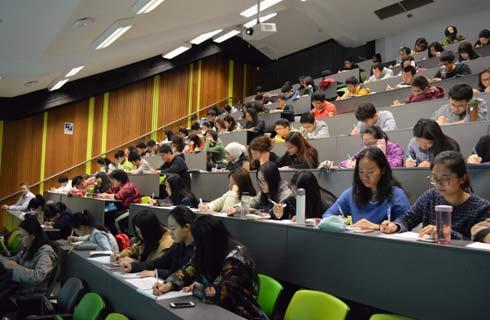- IDP China>
- 课程库>
- 计算机科学>
- 计算机与信息科学>
- 计算机科学>
- Master of Engineering in Materials Science and Engineering - Data Analytics and Machine Learning
Master of Engineering in Materials Science and Engineering - Data Analytics and Machine Learning

学历文凭
Masters Degree

专业院系
Department of Materials Science and Engineering

开学时间

课程时长

课程学费

国际学生入学条件
IDP—雅思考试联合主办方

雅思考试总分
7.0
- 雅思总分:7
- 托福网考总分:93
- 托福笔试总分:580
- 其他语言考试:Certificate of Proficiency in English (COPE) Minimum required scores - 76 (at least 22 in each component and 32 in writing)
CRICOS代码:
申请截止日期: 请与IDP联系 以获取详细信息。
课程简介
相关申请
 预科
预科 奖学金
奖学金 实习机会
实习机会 在校学习
在校学习 跨境学习
跨境学习 校园授课-线上开始
校园授课-线上开始 在线/远程学习
在线/远程学习
开学时间&学费
学费信息仅供参考,请与IDP联系以获取详细信息
| 开学时间 | 时长 | 学费 | 地点 |
|---|
学校排名

世界排名21
数据源:
泰晤士高等教育世界大学排名
关于多伦多大学

多伦多大学(University of Toronto),始建于1827年,坐落在加拿大的第一大城市多伦多,是加拿大的一所顶尖学府,亦为加拿大传统四大校之一。安大略省政府及议会环绕在市中心的女王公园四周,现已发展成为一所“一主两翼”格局的世界知名研究性大学--坐落于市中心的圣乔治校区(St. George),历史最为悠久,与3个更小的大学联盟并有享有七大学院制,与十座教学医院有着密切关系;东西向延伸至世嘉堡与密西沙加,UTSC有着乡村般的风光,风景别致,搭乘TTC一小时路程;UTM则是在西边,有校车往返。在学术及研究方面,多伦多大学一直处于领先地位。其经费、捐款、国家教授奖项、研究出版规模和藏书量皆为加拿大之首。多伦多大学出版社在加拿大乃至全北美影响深远。实行独立书院制的学府,荣获诺贝尔奖的教授人数是加拿大最多的。维多利亚学院是其最富有的学院之一 提供更多奖学金和相关设施。多伦多大学亦为美国大学协会中仅有的两所非美国学府之一。多伦多大学每年发表的科研论文数量在北美仅次于哈佛大学,引用数量位居世界前五。主要贡献:干细胞及胰岛素的发现,电子起搏器、多点触摸技术、电子显微镜、抗荷服的发明和发展,NP完全理论,以及发现首个经核证的黑洞。
本校相关课程
其他相关课程

Bachelor of Science in Engineering - Electrical Engineering (Information, Communication and Data Science)
 密歇根大学安娜堡分校
密歇根大学安娜堡分校学历文凭
Bachelor Degree
开学日期
课程费用总额


Master of Science in Data Architecture and Management
 东北大学- Kaplan International
东北大学- Kaplan International学历文凭
Masters Degree
开学日期
课程费用总额


SQL数据库管理成绩证书(莱尼学院)
 佩拉尔塔社区学院区
佩拉尔塔社区学院区 学历文凭
Advanced Certificate
开学日期
课程费用总额


数学理学士-数据科学
 内布拉斯加大学奥马哈分校
内布拉斯加大学奥马哈分校学历文凭
Bachelor Degree
开学日期
课程费用总额


Graduate Certificate in Data Analytics
 乔治梅森大学-INTO USA
乔治梅森大学-INTO USA学历文凭
Graduate Certificate
开学日期
课程费用总额


Master of Science in Data Science
 圣约翰大学
圣约翰大学学历文凭
Masters Degree
开学日期
课程费用总额










 加拿大
加拿大





